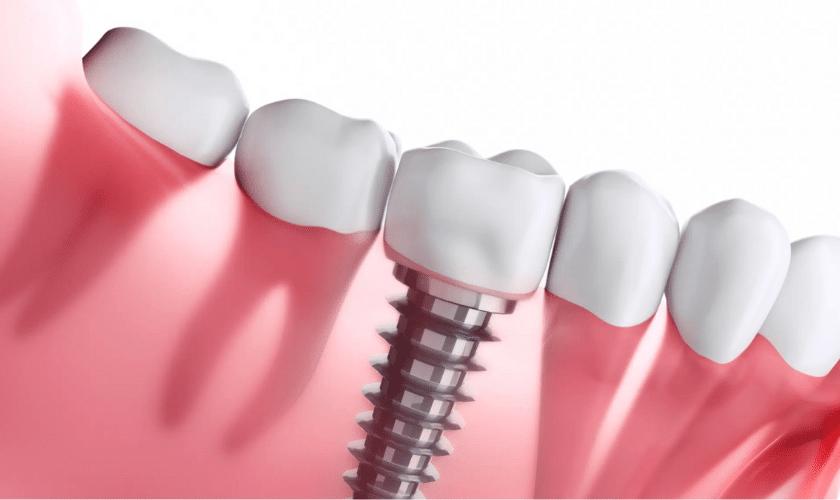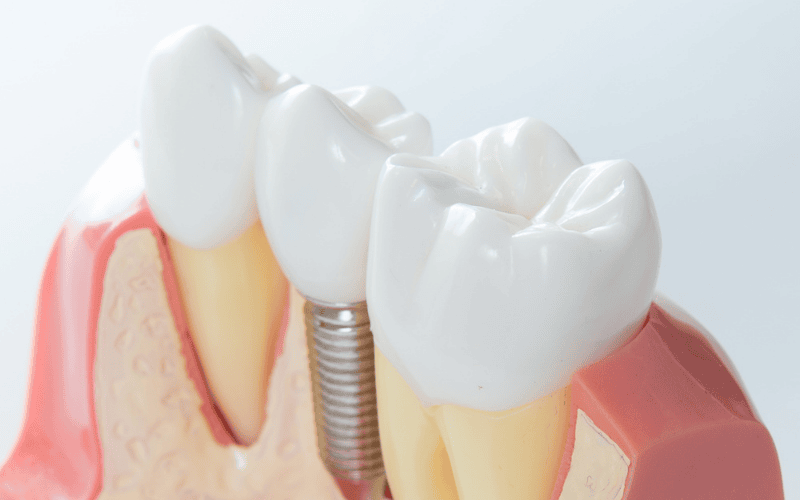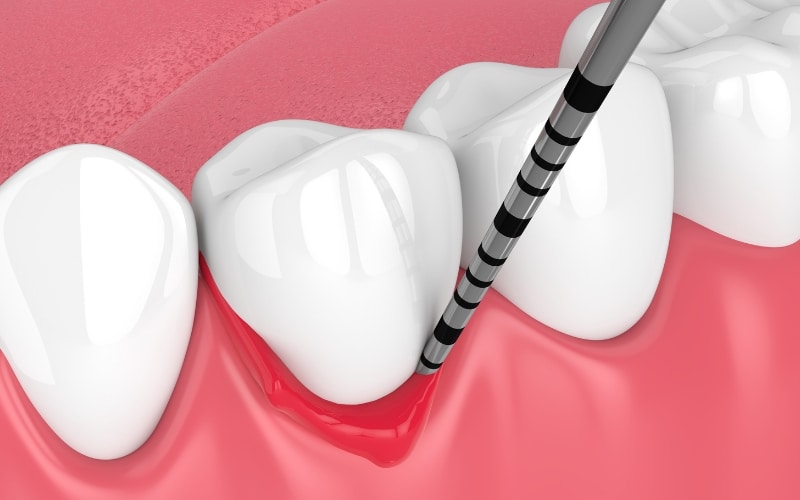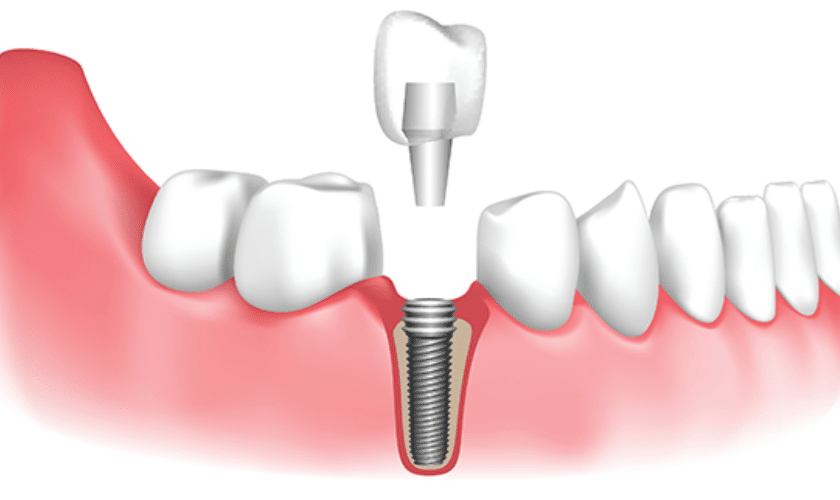3850 W Greenway Rd, STE 100 Phoenix, AZ 85053

A smile can be a game-changer. It lights up a room, boosts confidence, and speaks volumes without uttering a word. But what happens when your smile isn’t quite what you want it to be due to missing teeth? Enter dental implants—modern dentistry’s answer to restoring that radiant grin. If you’re considering dental implants or are simply curious about the process, this guide is for you. Let’s explore the benefits of dental implants and what you can expect throughout the journey.
Why Dental Implants?
Dental health significantly impacts overall well-being, affecting everything from nutrition to self-esteem. Missing teeth can lead to several issues, such as difficulty eating, speech problems, and even bone loss in the jaw. While there are various options for replacing missing teeth, dental implants stand out as the most effective and long-lasting solution.
Unlike dentures or bridges, dental implants offer a permanent replacement that looks, feels, and functions like natural teeth. This guide aims to provide you with a comprehensive understanding of dental implants, their benefits, and what to expect from the procedure.
The Benefits of Dental Implants
1. Natural Look and Feel
Dental implants are designed to mimic the appearance and function of natural teeth. They are securely anchored into the jawbone, providing stability and eliminating the discomfort and inconvenience associated with removable dentures.
2. Improved Oral Health
Implants do not require altering other teeth, as a tooth-supported bridge does. Since nearby teeth are not altered to support the implant, more of your own teeth are left intact, improving long-term oral health. Additionally, individual implants allow easier access between teeth, improving oral hygiene.
3. Durability and Longevity
With proper care, dental implants can last a lifetime. They are made from durable materials, such as titanium, which integrates with the jawbone, providing a sturdy and lasting foundation for replacement teeth.
4. Enhanced Eating and Speaking
Missing teeth can hinder your ability to chew properly, leading to dietary restrictions and nutritional deficiencies. Dental implants restore full chewing power, allowing you to eat your favorite foods without worry. Moreover, they help improve speech, eliminating the slur or mumble caused by missing teeth or ill-fitting dentures.
5. Prevent Bone Loss
One of the most significant advantages of dental implants is their ability to prevent bone loss. When a tooth is lost, the jawbone in the empty space deteriorates over time due to lack of stimulation. Implants stimulate the jawbone just like natural teeth, preserving bone density and facial structure.
6. Boosted Confidence
A complete, beautiful smile can greatly enhance your self-esteem and confidence. Dental implants help you feel better about your appearance, encouraging you to smile more often and interact confidently in social and professional settings.
The Dental Implant Process: What to Expect
Initial Consultation and Evaluation
The first step in the dental implant process is a thorough consultation with your dentist. During this visit, your dental and medical history will be reviewed, and a comprehensive examination of your mouth will be conducted. This may include X-rays and 3D imaging to assess the health of your jawbone and plan the precise placement of the implants.
Treatment Planning
Based on the evaluation, a personalized treatment plan will be created. This plan outlines the number of implants needed, the type of restoration (crown, bridge, or denture), and the timeline for the procedure. Your dentist will discuss the plan with you, addressing any questions or concerns you may have.
Preparatory Procedures
In some cases, preparatory procedures such as bone grafting or tooth extractions may be necessary before placing the implants. Bone grafting is required if there is insufficient bone height or width to support the implants. This procedure involves adding bone material to the jaw, creating a solid foundation for the implants. If needed, these preparatory procedures will be scheduled and completed before the actual implant surgery.
Implant Placement Surgery
The placement of dental implants is typically performed under local anesthesia, although sedation options are available for those who experience dental anxiety. During the surgery, a small incision is made in the gum to expose the jawbone. Holes are drilled into the bone, and the titanium implant posts are inserted. The gums are then stitched back together, and a temporary crown or bridge may be placed to protect the implant during the healing process.
Osseointegration
After the implant placement, a critical process called osseointegration begins. This is the period during which the implant fuses with the jawbone, creating a stable foundation for the artificial tooth. Osseointegration usually takes several months, during which time you will be advised to follow specific care instructions to ensure optimal healing.
Abutment Placement
Once osseointegration is complete, a minor surgical procedure is performed to attach an abutment to the implant. The abutment serves as a connector between the implant and the artificial tooth. The gums are allowed to heal around the abutment, which typically takes a few weeks.
Placing the Artificial Tooth
Finally, the custom-made artificial tooth (crown) is attached to the abutment. The crown is designed to match the color, shape, and size of your natural teeth, ensuring a seamless blend with your smile. Your dentist will make any necessary adjustments to ensure a perfect fit and comfortable bite.
Post-Procedure Care and Maintenance
Caring for dental implants is similar to caring for natural teeth. Maintain good oral hygiene by brushing and flossing daily, and visit your dentist regularly for check-ups and cleanings. Avoid habits that can damage your implants, such as smoking or chewing hard objects. With proper care, your dental implants can last a lifetime.
A Smile Worth Investing In
Dental implants are more than just a cosmetic solution; they are a long-term investment in your oral health and overall well-being. With their natural look and feel, durability, and ability to prevent bone loss, implants offer unparalleled benefits compared to other tooth replacement options. While the process may seem lengthy, the results are well worth the time and effort, providing you with a beautiful, functional smile that can last a lifetime.
If you’re considering dental implants, consult with a trusted dental professional to determine if they are the right choice for you. Embark on your journey to a healthier, more confident smile today—because everyone deserves to shine when they smile.




